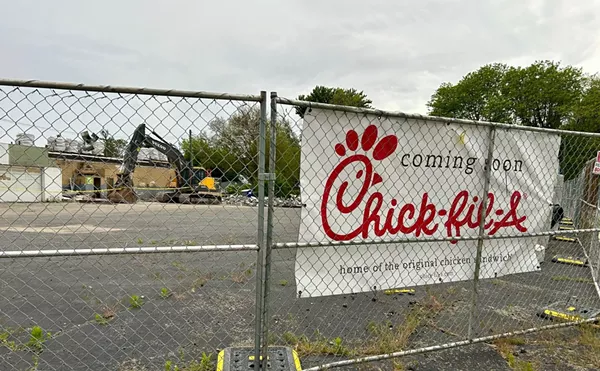
Audio By Carbonatix
[
{
"name": "GPT - Leaderboard - Inline - Content",
"component": "35519556",
"insertPoint": "5th",
"startingPoint": "3",
"requiredCountToDisplay": "3",
"maxInsertions": 100,
"adList": [
{
"adPreset": "LeaderboardInline"
}
]
}
]
In granting summary judgment to Lisa Carlson, executive director of the Funeral Ethics Organization, and other defendants, U.S. District Judge Robert Cleland tossed the lawsuit out of court last week. Filed last year, funeral home owner Thomas Lynch had claimed Carlson and related funeral rights and education advocacy organizations had libeled him in their criticism of his work.
Lynch, also a critically acclaimed author and poet, claimed in the suit that he had suffered “humiliation, mortification and embarrassment, both individually and professionally” as well as business losses, loss of goodwill, harm to business reputation and “loss of esteem and standing in the community and the industry” and had sought more than $75,000 in damages and legal fees.
Cleland, in his ruling, found Carlson’s criticisms did not meet the “actual malice” standard needed for successful libel claims for limited public figures, which he found Lynch to be.
Carlson’s Grosse Pointe Park attorney, William Burdett, says Cleland’s ruling has significance beyond the funeral industry.
“It vindicates the speech by confirming and upholding the valuable First Amendment principles that provide for vigorous public debate and criticism of public officials,” Burdett says.
Wendy Lyons, president of the Michigan affiliate of Funeral Consumer Alliance, says she’s relieved at the ruling. “Everyone has the right — if not the obligation — to doubt, scrutinize motives, and ask questions of those who put themselves out as public authorities on any topic,” she says. “The court’s ruling in favor of the funeral-consumer organizations and advocates shows that civil liberties are still alive and well in America.”
Metro Times first wrote about the lawsuit in the Jan. 21 story, “Grave debate”





